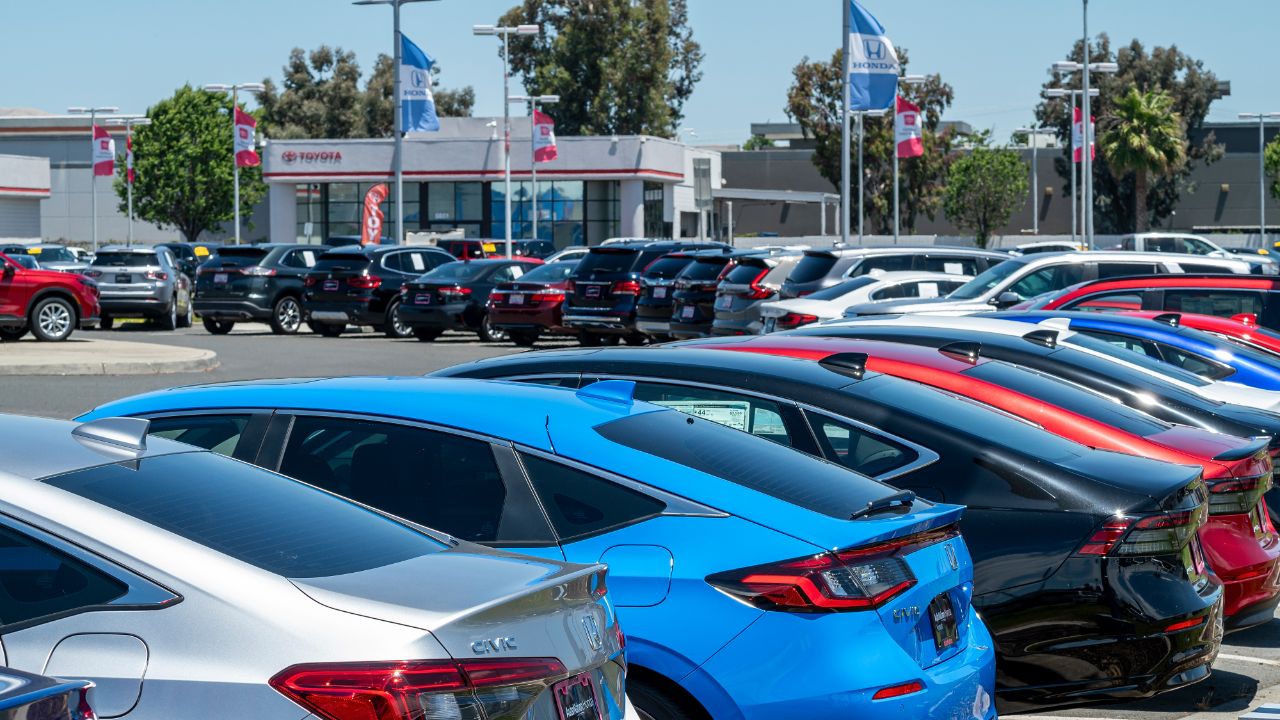Americans are falling behind on their car payments

Recent data from experts at Cox Automotive shows that Americans are still struggling with car payments. The number of defaults industrywide is up in the first half of 2024.
Car owners are having a hard time hanging onto their vehicles in the midst of an economy with soaring interest rates.
According to Cox Automotive, the volume of repossessed vehicles at Manheim auctions, the largest wholesale marketplace, is up 23% year over year through the first half of 2024. They are also up 14% compared with the same period in 2019, according to the data.
While that's only one metric, Cox Automotive senior analyst Jeremy Robb told FOX Business that he also tracks defaults industry-wide using Equifax data. That data suggests that defaults are up 11% during the first half of the year compared with the same period in 2019, Robb said. Lenders can repossess a vehicle when a loan is in default.
Data from the Federal Reserve Bank of New York’s latest quarterly tracking of American households’ levels of indebtedness, also revealed that 4.4% of Americans’ outstanding auto loan debt is in "serious delinquency."
FORD INVESTING $3B IN F-SERIES SUPER DUTY TRUCK EXPANSION TO MEET DEMAND
During the first fiscal quarter of 2024, auto loan balances also increased by $9 billion, and now stand at $1.62 trillion, according to the Fed.
Experts are putting part of the blame on the high interest rate environment.
Today, the average new car loan interest rate is sitting at 7.9%, up from the 4.18% in July 2021, which is right before the Fed started raising interest rates, according to data from Bankrate. Meanwhile, the average used car loan rate is at 8.55%, up from the 4.80% in July 2021, according to Bankrate data.
Policymakers raised interest rates sharply in 2022 and 2023 to the highest level in more than two decades in a bid to slow the economy and cool inflation. Officials, now grappling with when they should take their foot off the brake, entered 2024 expecting to reduce rates at least three times this year, but have repeatedly pushed back their plans, even though inflation eased in both April and May.
AUTONATION SAYS CDK OUTAGE WILL HURT ITS SECOND-QUARTER BOTTOM LINE
However, these interest rates are only one piece of why car owners are getting hounded by higher payments, according to Dave Cantin, CEO of the Dave Cantin Group, a mergers and acquisitions advisory company servicing dealership-driven industries.
One reason was that inventory was down during the pandemic, driving up car payment costs, Cantin said.
More specifically, Robb noted that inventory for new cars was strained during the pandemic because the supply chain for automotive manufacturers was hit.
"We had a scarcity issue on the new vehicle side that forced used vehicles to increase more in value," he said.
GET FOX BUSINESS ON THE GO BY CLICKING HERE
It's normal for used vehicles to depreciate in value over time but "when we had a big contraction in the amount of new vehicles that were produced, that really led to, seeing inflation… of used vehicles out there in the marketplace," Robb said.
Simultaneously, there was also an increase in demand for vehicles during the COVID-19 pandemic because "many people, especially in urban areas, that had relied on more public transportation… needed their own individual transportation to get around."
Those two issues together pushed supply and demand out of balance for used vehicles, and in turn, drove up prices, Robb noted.
While new vehicle inventory is improving, it's still down from pre-pandemic times, according to Robb.
Today, there are 3 million units of inventory for new vehicles sitting on the ground today. That's up from 1 million a year ago but still 800,000 less than 2019 levels, Robb said.
FOX Business' Megan Henney contributed to this report
